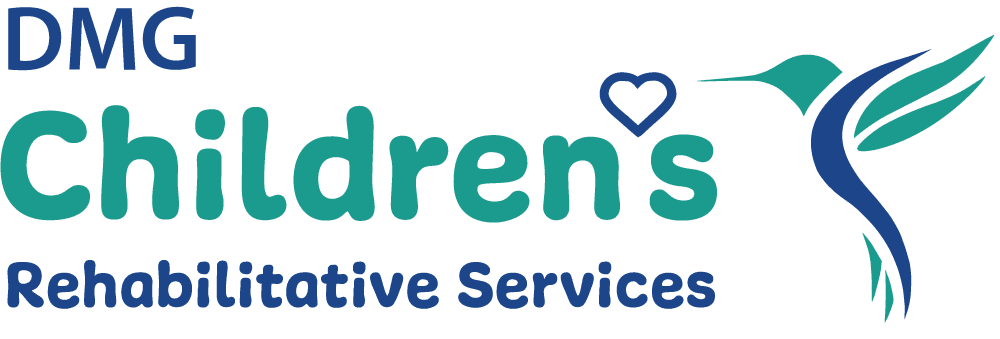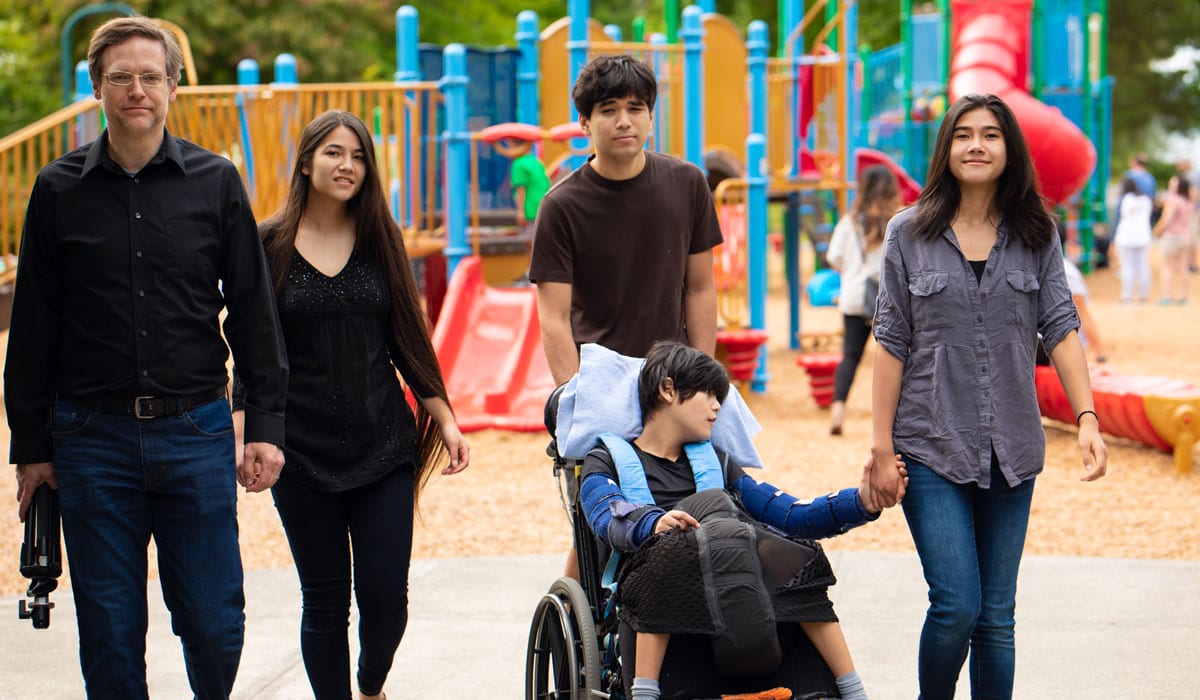3 Basic Wellness Tips for Every Family with Special Needs Children
by Linda Thunn, PT, DPT, DMG CRS Physical Therapist
Life with a special needs child or adult can be a complex, scary, and amazing journey full of ups and downs, triumphs and disappointments that affect the whole family. A good thing to remember is to think about the long-term outcome of a goal rather than just the immediate outcome. You may want your child to walk or talk, but that may not be possible. Therefore consider what can be done to support them in their effort to be the most independent and to find joy in their life.
Caring for a child with or without special needs is a marathon, not a sprint. You won’t always do the right thing, but with good intentions you will be on the right path. Below are three basic tips to improve wellness for the whole family.
1. Breathe
We know we need to eat right and exercise, but when you have a special needs child, you may not have the time to do the “right” things for yourself. Incorporating easy wellness activities into your daily life could make all the difference. The act of deep breathing with intention can decrease your cortisol levels thereby decreasing stress levels. Deep breathing for a few breathes, 3 to 5 times a day, takes practice to become a habit and to be effective.
Try it right now! Sit down in a chair with your feet flat on the floor. Slowly breathe in through your nose, counting to five (using your fingers to count will slow your breath). Hold your breath for two seconds, and exhale through your mouth to the count of five. The goal is to have your midsection expand during the inhale breath and soften during the exhale breath with your shoulders remaining still. Repeat this exercise three times. As you continue this practice you can add repeated positive thoughts while you breathe. And as you improve, you will be able to incorporate this in your walking, standing and exercising.
2. Play
Please take your therapists advice and include their information into typical activities of daily living. Whether you are working on sitting or walking with your child, you are promoting their independence. Ultimately all therapies are to promote progression to a less dependent adulthood. Please do not forget to play. Simple repetitive activities that are common during functional play builds pre-literacy, motor, and thinking skills. Whatever your age or skill level, everyone likes to participate if they are having fun. Arizona has a variety of resources for various skill levels, including adaptive parks and sports. Also family based physical activity increases the health and wellness of your family unit.
3. Community Resources
If you have access to the internet, search for community resources in your area by using terms such as “adaptive recreation” or “adapted technology,” and tailor the search to your child’s age based needs. Participate in the special programs that your child’s school offers, and if your child is going to the Special Olympics games, go with them or volunteer at an event. Another good resource are the support personnel in your child’s life, such as DMG CRS child life specialists, case workers, providers and therapists. For example, I have created the go-to document Arizona Community Sports and Programs for Children and Adults with Special Needs. That would be a great place to start improving wellness for your whole family.




